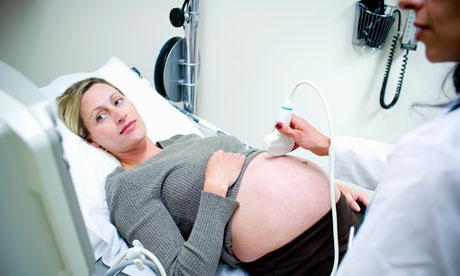
Doctors have recommended that flour should be compulsorily fortified with folic acid to try to reduce the number of babies born with birth defects, such as spina bifida.
The British Medical Association's annual conference endorsed, by a large majority, the call for the governments in Westminster, Edinburgh, Cardiff and Belfast to legislate "to make it a requirement for folic acid supplements to be in flour and flour-based products".
The Food Standards Agency and the Scientific Advisory Committee on Nutrition, a group of independent experts that advises ministers, already support the move, but so far neither the previous nor current government has acted on their advice.
Adults are recommended to have 0.2mg of folic acid a day, but women who are or are hoping to become pregnant are advised to consume 0.4mg of folic acid supplements between stopping their contraception and the 12th week after conception, to reduce the risk of their baby being born with neural tube defects.
The SACN believes the move would reduce the 700–900 babies born each year with neural tube defects, which affect the central nervous system.
Proposing the motion, Dr David Pring, from the BMA's Yorkshire region, said mandatory fortification of flour was needed because half of all pregnancies were unplanned, so those women may not have been having the recommended amounts.
Dr Protap Gupta, another Yorkshire doctor, opposed the move. Too much folic acid could increase the risk of developing colorectal (bowel) cancer, he said. The SACN investigated such claims, but in 2009 said that there was not enough evidence to prompt it to change its view that fortification was worthwhile.
The 500 delegates at the BMA gathering in Bournemouth also called for the introduction of a 0.05% tax on all financial transactions in the UK in order to raise £30bn a year to be spent on public services, but especially the NHS (£10bn), climate change (£5bn) and overseas humanitarian aid (£5bn).
Doctors demanded that local councils help to boost children's health and tackle obesity by stopping the sale of outdoor play spaces for property development.
"Governments must protect remaining outdoor space from sale and ensure that the built environment prioritises the provision of space in which to play outside. Investing in protecting open spaces is an investment in the health of the population," said Sue Robertson, a hospital doctor in Scotland, who made the call.
"As well as promoting PE in schools, we must not forget the benefits of encouraging children to play outside. It's free, it's fun, it makes you feel better and everyone can do it. Children are becoming less active for a number of reasons, but primarily because there are less outdoor areas where children can play and many parents are concerned about the safety of those areas", she said.
Delegates rejected proposals for two other public-health interventions: "fat taxes", to deter the consumption of unhealthy foods, and a ban on petrol stations being allowed to sell alcohol, to tackle drink-driving and binge-drinking.

